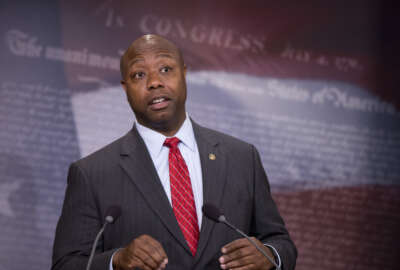
Tax system ‘increasingly at risk,’ says IRS advisory council
A shrinking budget amid growing expectations from lawmakers and taxpayers could do serious harm to the Internal Revenue Service, according to an IRS advisory...
Ensuring the education and enforcement of tax laws, while balancing growing expectations on a shrinking budget are the major issues challenging the Internal Revenue Service.
In the Internal Revenue Service Advisory Council’s 2015 annual report, released Nov. 18, the council determined that of all the issues facing the tax agency, “securing adequate funding for the IRS and preserving a strong, balanced, and independent Office of Professional Responsibility (OPR),” were the top priorities due to their involvement in helping the IRS meet its mission.
“IRSAC does not believe that current levels of funding are adequate to achieve these goals so necessary to each and every one of us as American citizens,” the report stated. “We say this as professionals who deal with the tax law, tax system, and tax agency on a daily basis. We say this because, candidly, it needs to be said. We believe our tax system, which is dependent on voluntary compliance, is increasingly at risk.”
IRS Commissioner John Koskinen in a statement called the feedback “valuable.”
The OPR is divided into an office of the director, legal analysis branch and operations, and management branch.
The office was mainly responsible for the Special Enrollment Examination and processing licenses and renewals for tax agents.
“Until a few years ago, the OPR sanctions were predominantly based on practitioners’ compliance with the tax laws on their own personal returns, and only rarely did the OPR address the duties and restrictions relating to practice before the IRS,” the report stated. “Over the past decade, the OPR has been relieved of the administration of enrolled agent credentialing and has enhanced investigative capabilities that permit it to investigate and sanction for disreputable behavior, becoming a highly effective division.”
OPR has expanded its investigations on violations to include:
- theft of taxpayers’ funds
- filing false powers of attorney
- failure to perform due diligence
- representing conflicting interests
This shift in monitoring, combined with educational outreach from the office, has created a sense of “cop on the beat,” the council stated, which encourages tax practitioners to uphold their responsibilities and comply with laws.
The council subgroup that considered the OPR also recommended that the IRS have the authority to regulate tax return preparers and all stages of tax practice, and that the agency adopt the Uniform Standards of Professional Appraisal Practice.
‘Massive downward adjustments’
Within the council’s recommendations for the OPR, as well as throughout its more than 130-page report, was the constant drumbeat of a declining budget.
In fiscal 2015, the agency’s oversight board recommended a budget of $13.6 billion, while the President recommended $12.5 billion. Congress eventually appropriated $10.9 billion, according to the report.
“Including the effects of across-the-board rescissions and reductions required by sequestration and other adjustments, overall funding for the IRS has decreased about 17 percent on an inflation-adjusted basis since FY 2010, and is now below FY 2009 levels,” the council reported. “The IRS has managed these massive downward adjustments in its funding by scaling back activities, freezing hiring, limiting training, and using limited budget flexibility to reallocate resources among its four appropriations accounts and the programs they respectively control.”
These cuts include “non-filer investigations, private letter rulings, a bankruptcy program, acquisition of e-discovery and document management software for tax litigation, and background reinvestigations of employees,” the council reported.
The agency’s funding has dropped by $1.2 billion since 2010. And the IRS spends nearly half of what other major countries like Germany, France and Canada spend on tax collection, according to a recent report from the Organization for Economic Cooperation and Development.
During his confirmation hearing, Koskinen said unfunded mandates, such as the Affordable Care Act and the Foreign Account Tax Compliance Act, also put a burden on his agency’s operations, dismal customer service and tax enforcement during the 2015 filing season.
The IRSAC report also addressed the decline in quality of taxpayer services as a result of reduced funding.
“During the filing season, the IRS was only able to answer about 37 percent of the calls routed to telephone assistors, and those callers who managed to get through had to wait on hold an average about 23 minutes,” the report stated.
That’s compared to 2004, a “high-water mark” year, according to the report, when the IRS answered 85 percent of its calls and callers were only on hold about three minutes during the filing season.
Last year, the hold time was only 14 minutes and about 71 percent of calls were answered.
The agency has also seen a 1,500 percent jump in the number of “courtesy” disconnects triggered by its overloaded switchboard. Between 2014 and 2015, the number of disconnects rose from about 544,000 to roughly 8.8 million.
Copyright © 2025 Federal News Network. All rights reserved. This website is not intended for users located within the European Economic Area.
Related Stories





